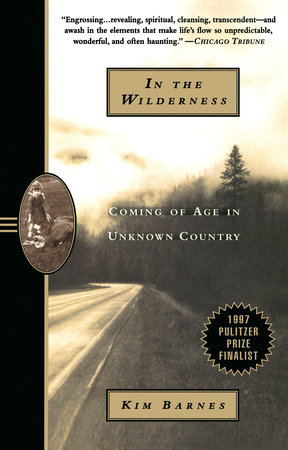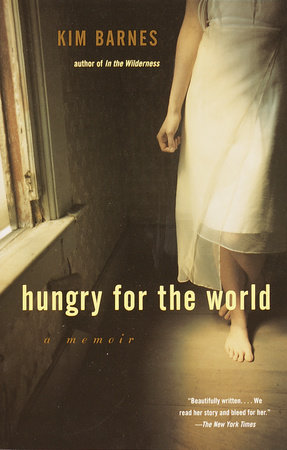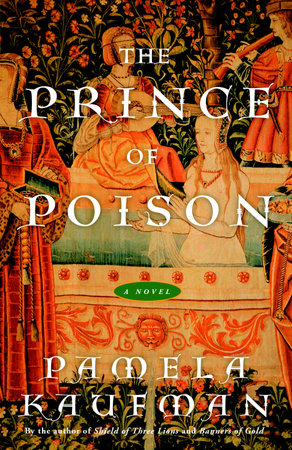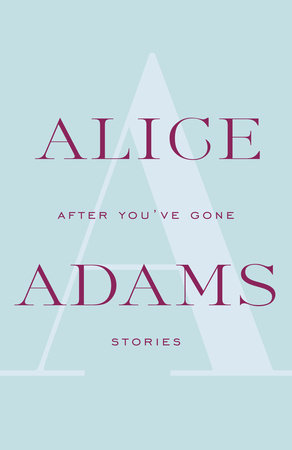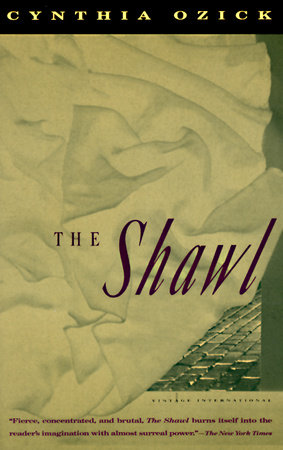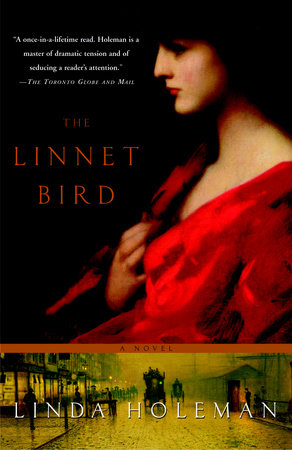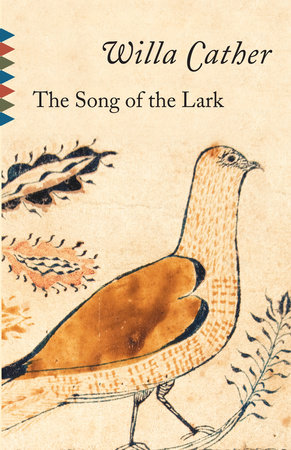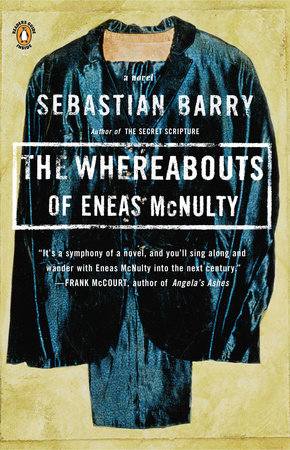Q: Part One of A COUNTRY CALLED HOME is preceded by an epigraph by John Gardner: “The fall from grace is endless.” Why did you choose this quote?
A: My young life was defined by the teachings of religious fundamentalism and the constant reiteration of man’s fall from grace—that fall from the Garden of Eden. The fact that my own father was a man characterized by a mix of uncommon nobility and flawed judgment…well, that’s the very definition of a tragic figure.
My father was an absolutist, a man of deep conviction who was determined—driven, really—to create a better life for himself and his family. Even though my character Thomas Deracotte is a Yale educated physician, while my father was a logger with very little education, they both believed that they could control the world around them with a mix of superior insight and will. Such people are often blinded by their own vision, even though the vision itself may be an honorable one. And the fact is that, even in their failure to realize that vision, and even though their flawed judgment and blind hubris may result in chaos rather than order, we benefit from their attempts. This is why A COUNTRY CALLED HOME is divided into two parts: the first part is the story of Thomas Deracotte’s attempt to create a Utopian existence for his wife and daughter. Part II explores how Deracotte’s vision, though destructive, is also creative: in the life of his daughter, Elise, we recognize the chance for redemption.
Like Elise, I have been both scarred and shaped by my father’s vision. The strength of his will and demanding nature instilled in me a sense of fearful respect, but it also allowed me the opportunity to rise above the poverty and familial dysfunction that had informed his own life. Without my father’s vision, even though flawed, I would not have achieved my educational and creative goals, and I am grateful. But I’m also aware of how that fall from grace—from childhood innocence and adult obliviousness to consequence—is perpetual.
Q: Where did the novel’s title come from?
A: My editor Jenny Jackson and I had been knocking around titles for a while. When I suggested the title A COUNTRY CALLED HOME to Jenny, she loved it immediately. I think that we both understood how the title evokes the sense of hope, longing, and resolution that the book explores. Home means so many things to me: a place of comfort, of recognition, of belonging. And country, too, is a word whose meaning is much larger than it seems. A woman or man without a country is someone without a community, a tribe, an identity. I think of Hemingway’s story “In Another Country”: that country is not simply physical but emotional and mental as well. William Gass has a wonderful story titled “In the Heart of the Heart of the Country,” and I love the use of the word heart to suggest not just a geographical center but an emotional core.
Q: A COUNTRY CALLED HOME takes place in Idaho, which is where you live. There seems to be something about the landscape of the West that has inspired many writers. How has living in
Idaho inspired you to write regional literature, if at all?
A: I resist the term “regional literature,” but I also understand how the western landscape seems to take on a life of its own in the minds of readers. There is a way in which the West is still the unknown territory, terra incognita, to those outside, and it may be that such a large and dramatic stage defines the atmosphere of a story.
For me, having grown up in the isolated logging camps and small towns of northern Idaho, the landscape is intrinsically linked to my sense of story. The western landscape is new, still being broken down and shoved around. The mountains are still being cut by rivers, the volcanoes are still erupting, and I embrace that sense of motion, of things still being formed and reformed, on such a grand scale. I love the drama, the potential for the natural world to incite action.
I don’t care what place I am writing about, I want to write about it intimately, to know it as my characters do, to have integrated its hanging valleys and river bluffs into my own consciousness. We are all defined by the physical realities of place, whether that place be New Haven, Connecticut, or Fife, Idaho. The smells, the flora and fauna, the feel of rain coming in off the ocean or the mountain snow—it’s all a part of the experience that a writer must re-create in order for the story to be credible.
Q: The novel is set in the 1960s and 1970s. Why did you choose this time period? Has Idaho changed significantly since that time period and would this be a different story if it were set in the present?
A: Like so many places in the West, Idaho has undergone dramatic changes in the past several decades, mostly brought on by an increasing population. The 60s and 70s represent the cusp of that change.
I often say that people come to the West believing that they can escape their torments. There is still that voice in their heads saying, “Go West, young man!”—that desire to “light out for the territories,” as Huck Finn said. It’s so big after all, all that open space and big sky. It allows us to believe that there is still a place we might escape to, where we can disappear and remake ourselves. But, of course, all we do is bring our torment with us. The landscape doesn’t absorb—it reflects. Maybe this is why I’m interested in the story of "newcomers" like Thomas and Helen Deracotte. What does it take to belong to a place? When do we know we’ve been accepted? In my mind, it all comes down to story. When our story becomes a part of the larger narrative of the place, then we have an investment there—we belong.
Even though I’ve set A COUNTRY CALLED HOME in the 1960s and 1970s in order to take advantage of that sense of impending change and to capture a time when much of the West still seemed defined by possibility, I believe that the story of the family itself could happen in any place at any time. Our dreams and visions, our flaws and failures, our desire for love and fear of loss, our need for identity—more than the landscape or time setting, these are the elements that define the story.
Q: In your memoir In the Wilderness: Coming o f Age in Unknown Country, you write about your parents’ involvement in fundamentalism. In A COUNTRY CALLED HOME, the character Elise is drawn into the fundamentalist Pilgrim Holiness Church. Does her experience mirror your own at all?
A: In many ways, Elise’s experience with the church is a projection of my own. My young life was defined by the teachings of Pentecostal Fundamentalism. We were charismatic, which meant that we believed in the “gifts of the spirit”: speaking in tongues, prophesy, and healing. We also believed in demon possession and exorcism. Every pain, point of confusion, and moment of despair could be blamed on Satan’s influence.
I’ve often thought my parents turned to the little church we attended because of their need for community in such an isolated setting. They were very young when they married, and both were trying to break the cycle of poverty and alcoholism that had defined their own upbringings. Like Elise, what they found in the church was a community of believers with a defined (and very strict) code of behavior, which brought order to the chaos that was their inheritance. The small congregation was like a family: we called one another “brother” and “sister.” We practiced public confession and believed we knew the secrets of one another’s heart. Our beliefs were absolute, and so we were freed from the need to question.
What Elise is searching for is some way to understand what her life is made of, to make sense of her young woman’s turbulent emotions. In a place of social isolation, in the absence of her mother, and without her father’s guidance, she is left to find meaning on her own, and the church offers her a sense of belonging and comfort.
Like Elise, my experience with the church took a dramatic and devastating turn when I was a young woman: the minister and his wife, whom I believed loved and cherished me as a member of their spiritual family, accused me of being demon possessed. Luckily, I was eventually able to move beyond their devastating accusations and escape their influence. But for Elise, the situation becomes increasingly dire, and she is forced into great torment before finding her own way to a place of safety and understanding.
Q: One of the characters in A COUNTRY CALLED HOME has the condition synesthesia, which has gotten more attention recently as studies of music and the brain have increased. What initially caught your interest in this condition?
A: I’ve always been intrigued by synesthetes—people whose senses function differently, outside of the “normal” experience. Elise is a synesthete: she sees color when she hears music. Like most synesthetes, it takes her some time to realize that her condition is unusual.
Who can help but be fascinated by how the brain works? I remember a quote that goes something like, “The brain is governed by forces that even the brain itself cannot understand.” Even though we’ve learned a great deal about the perceived mind/brain divide, the brain and its functions remain one of the great mysteries.
So, scientifically, I’m intrigued by synesthesia, but I’m also interested in the aesthetics of the condition. It seems to me that synesthetes live in a state of ongoing metaphor. I was interested in exploring how such a characteristic might inform the tension and action of a story. Like so many “differences” between individuals, synesthesia has often been misunderstood and seen as a kind of illness or disorder rather than as an integrative and creative interpretation of sensory stimulation. Scientists sometimes describe synesthesia as part of a “cognitive constellation.” How beautiful is that? Famous synesthetes include Liszt, Kandinsky, Nabokov, and Duke Ellington.
Q: Your husband is a poet. What is it like to be part of a writing couple?
A: I’ve been married for twenty-five years to the poet Robert Wrigley. One of my students once asked, “What do the two of you talk about over breakfast?” I had to laugh because, in her mind, we must live in a perpetual state of excited interaction. And the truth is that we often do find ourselves talking about an idea for a poem or a breakthrough insight into character motivation. We never tire of imagining and discussing the possibilities contained in our art. From the beginning, Bob has been my first and most important reader, and I’m most often the first lucky person to see drafts of his new poems. From him, I have learned how to listen for the music in words.
I feel very lucky that I share my life with someone who understands how I absorb the world. For both of us, it’s all about word, image, story. I’m also lucky that whatever competition that exists between us is gentle and often humorous (and it’s probably a good thing that his focus is poetry and mine is prose). We understand how locked in and distant the other can get when concentrating on a poem or a scene. We’re empathetic when the writing isn’t going well, and we know how to offer encouragement and support without giving advice, which no writer wants to hear when he or she is in the depths of creative depression. I love that I never have to explain my passion to Bob or rationalize my use of time to write.
Q: What are you working on now?
A: I’m at work on a novel set in 1960s Saudi Arabia. It is the story of a young American couple who follows the oil boom from Oklahoma to Abqaiq, one of the Arabian American Oil Company’s gated compounds. All they want is to make a better life for themselves, and they end up paying dearly for that desire. In this way, it is not unlike A COUNTRY CALLED HOME—that endless fall from grace.






